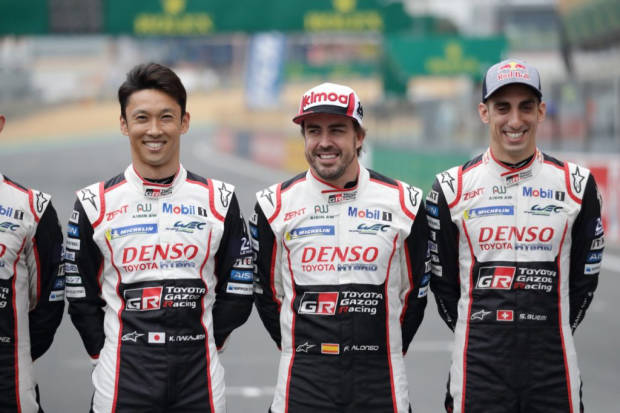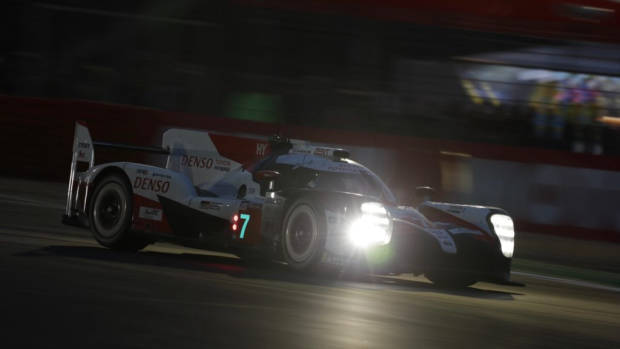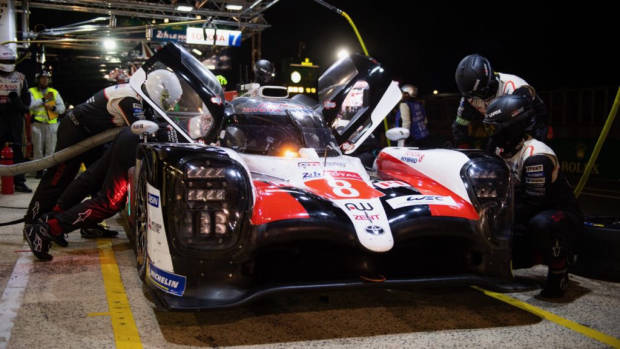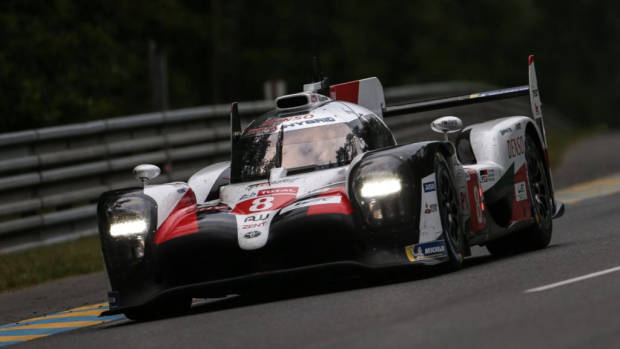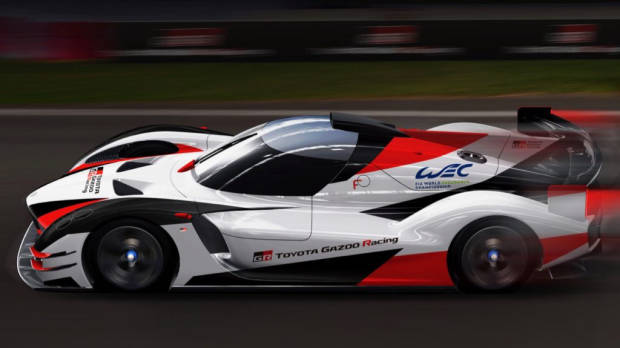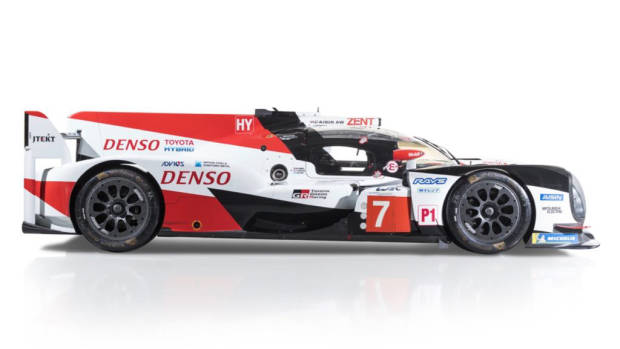-
Car Reviews
- All reviews
- Midsize SUVs
- Small cars
- Utes
- Small SUVs
- Large SUVs
- Large cars
- Sports SUVs
- Sports cars
- Vans
Latest reviews
- Car News
-
Car Comparisons
Latest comparisons
- Chasing Deals
- ChasingCarsGPT
Toyota’s Gazoo Racing motorsport wing has claimed its second-ever win at the legendary 24 Hours of Le Mans endurance race in France overnight.
The historic consecutive win marks back-to-back victories for Toyota at one of the world’s premiere racing events. Maintaining the same Toyota TS050 hybrid LMP1 vehicles and the same team structures as last year, Toyota’s 21st campaign at Le Mans turned up trumps.
Toyota once again entered two TS050 hybrids at Le Mans, which wore #7 and #8 numbering. For the second year running, car #8 – piloted in part by Spaniard Fernando Alonso – claimed victory, while number-seven came in second.
But while Toyota were all smiles at the result, it was a bittersweet finish for the three drivers of the #7 car, which had led the race for almost the entire race, often with a commanding lead. At 2pm – one hour before the finish – number seven sustained a puncture on the far side of the circuit.
Driver Jose Maria Lopez limped TS050 #7 to the pits and the errant tyre was replaced quickly, but it was impossible to make up the 56-second lead that #8 managed to open up during the kerfuffle.
Much like in 2018, the Toyota TS050 vehicles dominated the race from the very beginning. While there were moments of tight competition between the Toyotas themselves, rival prototype vehicles in the flagship LMP1 class – fielded by Rebellion and SMP – struggled to keep up.
For the most part, it was smooth sailing for Gazoo Racing, aside from the aforementioned puncture and a minor conniption with a door latch – showing just how far the Toyota teams have come since the heart-wrenching result in 2016, where a defect in the twin-turbocharging system of the vehicle caused it to break down – pole position – on its penultimate lap.
No such luck for rival LMP1 team SMP, though, who lost one of their two fielded vehicles midway through the race to a crash. Eleven cars in total did not finish this year’s race, which also includes the slower LMP2 prototype category and the GTE class that is a closer mirror to production sports cars.
This year saw the number seven car shine from the beginning, with 35-year-old Conway setting the fastest-ever race lap – 3:17.297 – at Le Mans, on just the fourth lap. Across Conway’s stints in the car, #7’s lead only grew more dramatic, before contracting slowly and eventually evaporating after the puncture.
The #8 car was piloted by Fernando Alonso, Sebastien Buemi, and Kazuki Nakajima, who drove the final, winning lap. Last year, it was Alonso driving at the end of the race, fulfilling an aspiration to win Le Mans at least once.
The 2018-2019 FIA World Endurance Championship was an unusual one in that it was bookmarked by two 24 Hours of Le Mans races – usually a season has just one of this hallmark event.
Toyota Gazoo Racing had already taken out the manufacturer and driver world championship in the 2018-2019 WEC season. Because of points allocation from races across the season, the #8 car retained the driver’s title.
The Le Mans field has shrunk in recent years, with Toyota currently the sole large automaker competing in the LMP1 class. BMW, Porsche and Aston Martin are present in the race but in the field of slower GTE cars.
Vice president of Toyota Motorsport Rob Leupen conceded that the departure of former big-name rivals in the LMP1 class, including Volkswagen and Audi, had stifled competition in the sport but insisted that Toyota was pushing the limits regardless.
This will all change from next year, with the LMP1 class to be scrapped in favour of a less powerful hypercar division that will be the flagship segment at the next Le Mans.
Toyota has already committed to entering with a new Gazoo Racing Super Sports (GRSS) hypercar producing around 750 horsepower (560kW). Aston Martin has also confirmed that it will enter with its Valkyrie hypercar.
FIA homologation rules for endurance racing prohibit substantial changes to vehicles mid-season, so the Toyota TS050 remains much the same as the vehicles that raced and won here in 2018.
Under the exotic skin of the TS050 sits a petrol-electric hybrid powertrain producing 1000 horsepower, or 735kW. That’s produced by the combination of a 2.4L twin-turbocharged V6, Denso and Aisin electric motors and a large lithium-ion battery. Torque is sent to all four wheels.
Gazoo Racing have committed to continue factory support for endurance racing, and they will be back at Le Mans in a year’s time. The team will be missing the star power of Alonso once the next season kicks off in September, with the Spaniard to be replaced by New Zealander Brendon Hartley.
Latest news
About Chasing cars
Chasing Cars reviews are 100% independent.
Because we are powered by Budget Direct Insurance, we don’t receive advertising or sales revenue from car manufacturers.
We’re truly independent – giving you Australia’s best car reviews.
